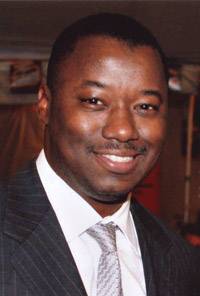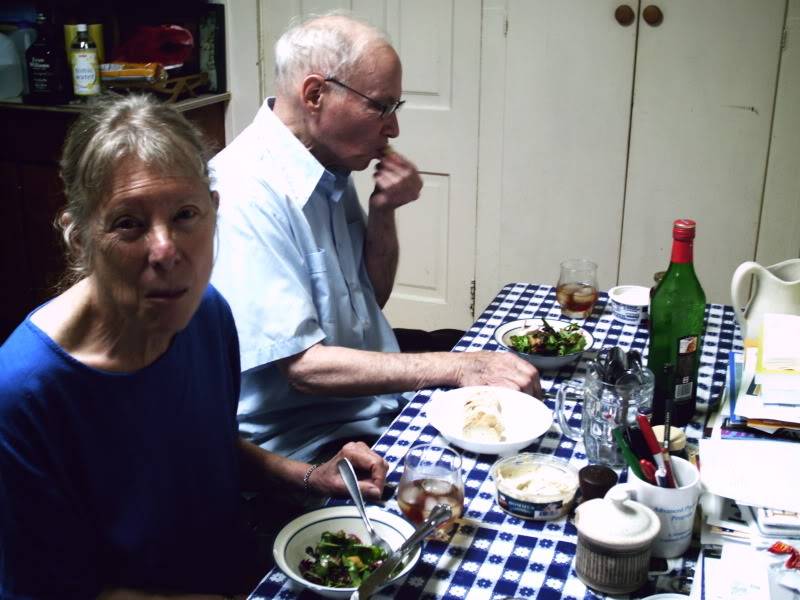“Now you’re making me burp,” my mother declared, supine, from her hospital gurney.
When they first wheeled rolled her into the Recovery Room, she couldn’t say anything. Her tongue was dry and swollen. Her eyes rolled and darted. She was Anakin Skywalker, unmasked. Now, a few hours later, she could say anything, and did. Her sentences featured verb-subject-object structure. It was not abstract poetry. Only her meaning was completely indecipherable.
She was in the room, but she was not really there.
My mother had spent nine hours in the O.R. while a gifted neurologist slowly cauterized and removed the myriad blood vessels that had grown, over years, to feed the tumor. Then, he carved the tumor out.
“Tumor” is a dramatic word, to which any soft rock should aspire. “Tumor” threatens in a way that “calcification” simply cannot. But any object attains gravitas when it’s growing inside one’s skull.
“Now I hear Susanna thanking Dr. Chandler for canceling,” my mother continues. Then, raising her voice, she scolds them: “I can hear you talking out there!”
My sister Susanna happens to be on staff at this hospital. She’s a pediatric pulmonologist. Dr. Chandler is the brilliant surgeon. He must be getting tired by now. But in fact, I don’t believe he is in the hallway. I think he’s gone home for a well-deserved rest.
We’re in the Feinberg Pavilion at Northwestern Memorial, in downtown Chicago. I was available for next-of-kin duty. That is, I was willing to take off a weekend and a few hundred dollars worth of tips from my nightclub bartending job.
It’s not a hand-holding gig. There’s little post-op commiseration with invasive brain surgery. The patient is completely batshit out of her mind. She might regard a held-hand as an attack by wolves. Although in my mother’s case, they would have to be conspiring wolves. But heck, how often in life do you get a chance to lie on a waiting room floor for nine hours?
 Susanna lives here. If Susanna still lived in Baltimore, the surgery would have been performed in Baltimore. Coincidentally, Dr.Chandler (left) had come to Northwestern from the University of Maryland.
Susanna lives here. If Susanna still lived in Baltimore, the surgery would have been performed in Baltimore. Coincidentally, Dr.Chandler (left) had come to Northwestern from the University of Maryland.
The other four McColley kids do not live in Illinois. It was just the two of us. And in fact, we didn’t wait the whole nine hours. We sneaked over to Eli’s for a Martini and a ribeye. More coincidentally, Dr. Chandler’s mentor at Maryland — Dr. Robinson — had since moved to Champaign-Urbana, and occasionally came in to the club where I worked, for a Martini. It’s a very small world.
It was very large rock.
“They put it back in the wrong place, Rob,” my mother complained.
“What’s that?” I asked.
“You put it back to the beginning. Now you’re writing a list of what CD’s I have to listen to.”
It’s like talking to someone on a bad acid trip. Very like it, in fact. I had that experience once in college. LSD does the same thing to a brain that scalpels do: They alter one’s perception of one’s own senses. I gather that my mother is processing sounds which she’s heard, or is hearing, but not with any linear sense of time.
“You might as well tell me the truth Susanna,” my mother beseeches, “as you just said.”
“She’s left the room,” I tell her.
“But I can hear her.”
“You’re imagining it.”
“I can hear everything they say,” she concludes. “And now you’re fixing to call Dr. Chandler again.”
It’s an unusual construction from an English Ph.D. with a Renaissance specialty. I’ve never heard my mother speak in middle-American vernacular. Should I interpret this as The Silver Lining? I wonder whether she’ll ask me to “worsh” anything. I can’t ken the cant. I don’t know the provenance of her patois, nor where it hid for my first 31 years. She’s reverted to her own mother’s Okie argot, perhaps?
But in fact, I never really knew her mother. She’d drifted into Alzheimer’s during my childhood, was muted by it before my adolescence. Still, it was intriguing to hear my mother speak the native tongue, despite the underlying hostility. I certainly wouldn’t want to suggest that maternal accusations were music to my ears. But at least they were surreal. It was different from the very real variety of torture I’d endured for the past six months.
The truth is, I was happy to get away from the bar, hundreds of dollars or not. It was September 2002. Throughout the spring and summer, my ex?-girlfriend had behaved strangely. She was always around, but she was not really there.
In August, it finally became clear that she was not, after all, gearing up for a Peace Corps tour-of-duty in South America. She was banging one of our co-workers. I found out on the night Jay Bennett & Edward Burch made their triumphant debut, performing The Palace at 4 a.m. to a full house, as I pulled drafts and popped bottle caps. They opened with my favorite song, “Like a Photograph.” I had been looking forward to the show for a long time. I had to leave midway through. I could barely breathe.
The boss seemed to understand. Employee co-mingling is an ongoing problem in nightclubs, where all the sexiest people in town get jobs and then begin bed-hopping.
Jay had his own betrayal to deal with, and an unflattering minor motion picture to contend with. He came over after the show, cracked open a beer, picked out some records to listen to, and then assisted me in leaving accusatory voice-mail messages on her cell phone. That was nice.
Nice moments were few for 2002. I hadn’t slept in months. Every time I went to work, they were there. Every time I went home, I went home alone. So it was actually a perfect time for my mother to have a rock in her head, and then to have it removed. If I hadn’t been so self-absorbed, I might have been worried about her.

A quiet honking from the blood-oxygen monitor breaks my reverie. My mother has removed the sensor from her middle finger, again.
“Would you like to put the oxygen sensor back on?” I ask.
“Yes,” she avers. “I see it’s working again.” That last bit sounds rational. But I think she’s referring to the music, Vejesu, and not the oxygen monitor. She confirms my suspicion: “It seems to be working because I’m not remembering the previous ones. And huh! So you might as well give up!” She’s clearly of the mind that everyone is out to get her. It’s probably a defense mechanism. The brain defends against … whatever it’s defending against. Alzheimer’s patients are that way, too.
I stand, contemplating.
Psychosis and paranoia will, according to the attending physicians, diminish gradually over the next six months. It will be a long six months. On the bright side, in a week and two days, I will meet Heather. “And you’re putting on the Ferris wheel again,” mom adds. “And now you’re fixing to fart me again!”
“Yes,” I admit.
“But it’ll only be twice,” she concludes, adding only “will you tell her the Little Golden Story today? There’s a television you didn’t fix.”
Seven years on, my mother no longer wields a light-saber.
She wants me to point out, for the benefit of those facing brain surgery, that she recovered reasonably well, and got right back to work researching a book.








